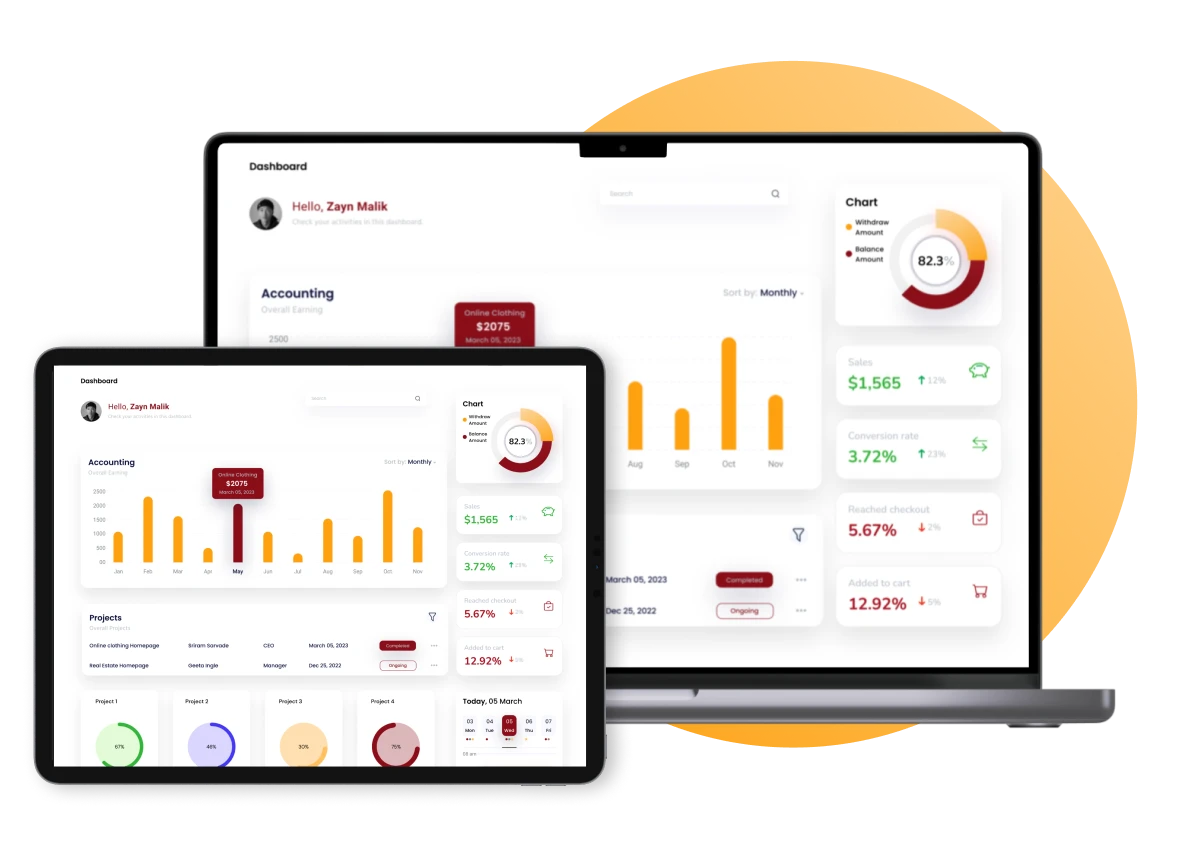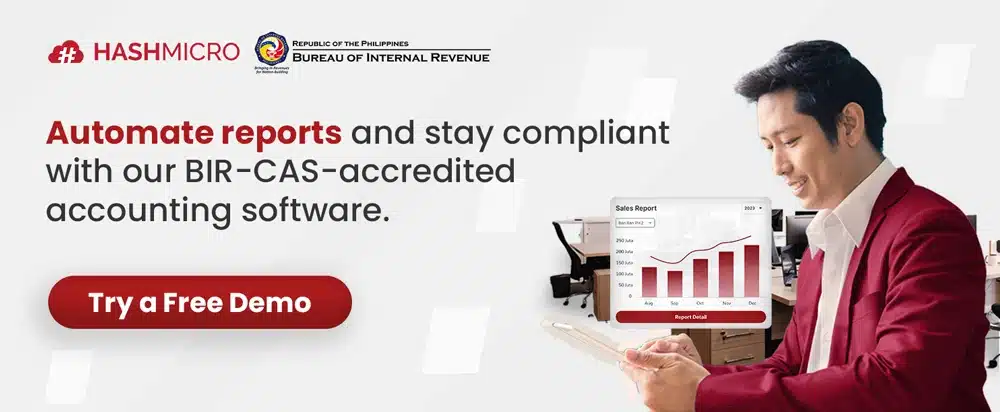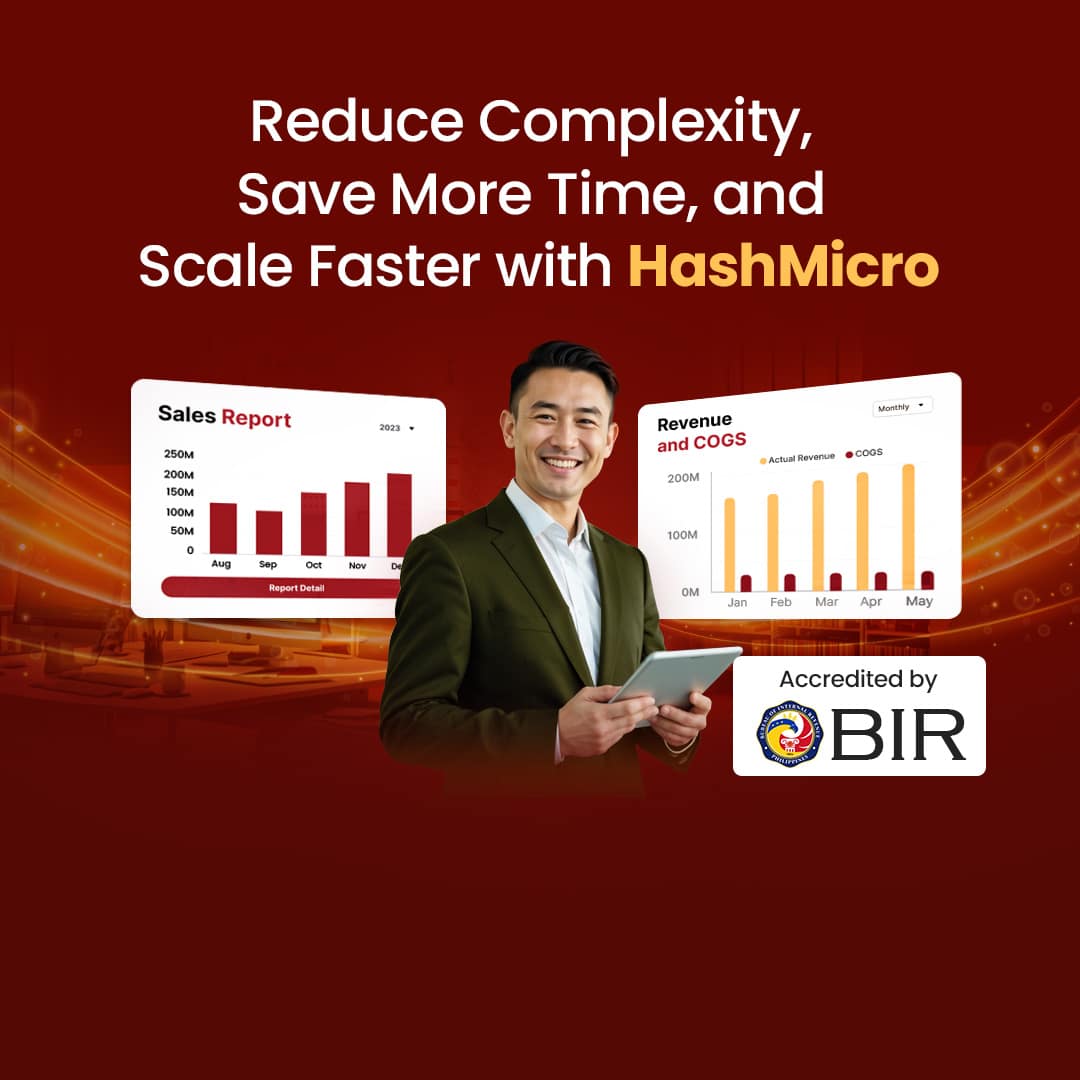Managing the financial aspects of real estate is crucial for maintaining profitability and ensuring business growth. Property management accounting simplifies complex transactions, enhances financial visibility, and supports compliance with local regulations.
This article will explore the importance of property management accounting, its key components, and how software like HashMicro can streamline property financial management.
Key Takeaways
|
Table of Contents
What is Property Management Accounting?

Property management accounting records and analyzes financial transactions in real estate. It helps track income, expenses, and property values to ensure informed decisions and accurate reporting.
This process involves managing rental revenues, monitoring expenses, and assessing property values. Accurate valuations reflect market trends, guiding better investments. For complex transactions like land purchases and developments, adopting reliable systems ensures smooth financial operations.
Why is Property Management Accounting Important?
Property management accounting ensures accurate records of financial transactions and supports sound decision-making. It builds trust through transparency and keeps businesses compliant with regulations.
- Financial Accuracy: Ensures all transactions are recorded properly for a clear financial overview.
- Regulatory Compliance: Helps businesses meet tax laws and financial reporting requirements.
- Informed Decision-Making: Offers insights into cash flow, profits, and investment opportunities.
- Enhanced Transparency: Strengthens trust with stakeholders by showing financial performance clearly.
Effective property management accounting improves financial clarity and simplifies complex real estate operations. By focusing on accuracy, compliance, and transparency, businesses can achieve sustainable growth and make better financial decisions.

Components of Property Management Accounting
Understanding these components is essential for managing real estate finances effectively. Property management accounting relies on these elements to create accurate financial reports and guide decisions.
- Assets: Tangible items like land, buildings, and properties owned by the business.
- Liabilities: Financial obligations such as loans, mortgages, and debts.
- Equity: The owner’s residual interest after liabilities are deducted from assets.
- Revenue: Earnings from property rentals, sales, or service fees.
- Expenses: Costs related to maintenance, marketing, and daily operations.
These components form the backbone of property accounting. Mastering them ensures your financial reports remain accurate, transparent, and useful for decision-making, setting your business up for sustainable growth.
Principles of Property Accounting
Understanding the principles of property accounting is key to managing finances effectively and maintaining compliance. These principles ensure transparency, consistency, and accuracy in financial reports, which are crucial for both decision-making and stakeholder trust.
Revenue Recognition
Income should be recorded when earned, not when received. This ensures financial statements reflect the company’s true performance.
Full Disclosure
Provide all relevant financial information in reports. Transparency builds trust with stakeholders and supports informed decision-making.
Consistency
Use the same accounting methods over time for comparability. This helps in evaluating financial trends and performance accurately.
Historical Cost
Record properties at their purchase cost. This avoids subjective valuations and ensures verifiable financial data.
Adopting these principles creates a foundation for accurate financial management. By applying them consistently, businesses can enhance trust, maintain compliance, and ensure their financial decisions are grounded in reliable data.
Benefits of Accounting Software for Property Management
Modern accounting system is a game-changer for property management. It simplifies financial tasks, improves accuracy, and saves time, allowing businesses to focus on growth. These tools are essential for seamless and efficient financial operations.
- Automation: Automation tackles repetitive tasks like invoicing, tax calculations, and reporting. It eliminates manual errors, ensuring accurate and smooth operations.
- Accuracy: By minimizing human errors, accounting system software delivers reliable financial data. Accurate records inspire confidence and ensure compliance.
- Real-Time Reporting: Real-time reporting provides instant access to financial insights. This helps property managers track cash flow and make proactive decisions.
- Compliance: Staying updated with tax regulations is easier with software. It simplifies compliance, reduces risks, and ensures accurate reporting.
Investing in automation accounting software ensures property management processes are streamlined and reliable. These benefits set the foundation for long-term success, making your business competitive and well-prepared for growth.
Methods for Real Estate Valuation
| Method | Description |
|---|---|
| Fair Value Method | Evaluates property based on current market conditions. |
| Cost Approach | Calculates property value by estimating construction costs minus depreciation. |
These methods provide a structured way to determine property value accurately. Whether using market data or cost estimates, selecting the right approach depends on the type of property and its purpose.
Common Financial Reports in Property Management
Financial reports are essential for understanding a property’s financial performance. They provide detailed insights into various aspects of property management, helping managers make better decisions and improve financial strategies.
- Income Statement: This report shows profit or loss over a specific period by highlighting revenues and expenses.
- Balance Sheet: It offers a snapshot of a company’s financial position, focusing on assets, liabilities, and equity.
- Cash Flow Statement: Tracks the movement of cash in and out of the business, helping monitor liquidity effectively.
- Equity Statement: Displays changes in the owner’s equity, reflecting investments and retained earnings over time.
By analyzing these reports, property managers can gain a clearer understanding of financial health, improve budgeting, and enhance operational efficiency.
Setting Up Your Property Management Accounting
Getting started with property management accounting requires careful planning and a structured approach. Setting up your system properly from the beginning ensures accurate financial tracking and streamlined operations.
Choose a Reliable Accounting Software
Investing in reliable accounting software is the first step in building a strong financial foundation. Look for tools that simplify property management tasks, improve accuracy, and provide real-time insights. These tools eliminate manual errors, automate reporting, and enhance decision-making for property managers.
Create a Chart of Accounts (COA)
A well-organized Chart of Accounts categorizes all financial transactions, making it easier to track and analyze data. Set up specific accounts for assets, liabilities, equity, revenue, and expenses. This systematic approach ensures consistency and clarity in financial reporting.
Separate Personal and Business Finances
Keeping personal and business finances separate is crucial for clear accounting and compliance. Open a dedicated business bank account and use it exclusively for property management transactions. This separation avoids confusion and simplifies tax filing.
Document Financial Processes
Establishing clear procedures for recording and reporting transactions ensures consistency and accuracy in financial management. Outline steps for bookkeeping, reconciliation, and reporting. Regularly review and update these processes to adapt to evolving business needs.
By implementing these steps, property managers can establish a strong accounting foundation, making it easier to manage finances effectively and grow their business.
Best Practices for Accounting in Property
Effective accounting practices are essential for maintaining financial clarity and ensuring smooth property management. Avoiding common errors and following best practices can significantly enhance your operational efficiency.
- Monitor Cash Flow Consistently: Keep track of cash inflows and outflows to avoid liquidity issues.
- Ensure Accurate Property Valuations: Use professional appraisers and reliable methods to reflect true property values.
- Maintain Organized Documentation: Properly store financial records for audits and verifications.
- Separate Personal and Business Finances: Use distinct accounts to prevent confusion and maintain clarity.
- Develop a Chart of Accounts (COA): Categorize transactions systematically for better tracking and reporting.
- Utilize Reliable Accounting Software: Streamline operations with tools that enhance accuracy and compliance.
By combining these strategies, property managers can minimize errors, maintain compliance, and build a robust foundation for financial decision-making.
Easily Manage Property with HashMicro’s Accounting System

Managing property finances effectively requires robust tools that simplify processes and enhance accuracy. HashMicro’s Accounting System offers features designed to optimize property management and streamline financial operations.
Here are some features that can help you manage property:
- Bank Integrations – Auto Reconciliation: Automatically reconcile transactions to save time and improve accuracy.
- Profit & Loss vs Budget & Forecast: Compare financial outcomes with projections for better decision-making.
- Cashflow Reports: Generate detailed cash flow reports to monitor liquidity and plan for the future.
- Multi-Level Analytical: Analyze financial statements across projects, branches, or divisions with ease.
- Custom Printout for Invoices: Create tailored invoices for various needs, enhancing professional communication.
By utilizing HashMicro’s Accounting System, property managers can save time, improve financial accuracy, and focus on growing their business. Explore these features and experience seamless property management by scheduling a free demo today!
Conclusion
Property management accounting tracks and analyzes financial activities to ensure accurate reports and informed decisions. By following key principles and utilizing modern tools, businesses can maintain compliance and improve financial visibility.
Leveraging best practices and software solutions like HashMicro enhances property management efficiency and transparency. Unlock your business’ potential and take control of your finances by scheduling a free demo today!
Frequently Asked Questions
-
What is the meaning of property accounting?
Property accounting tracks financial activities related to real estate operations. It ensures accurate records of income, expenses, and property values for informed decisions.
-
What is the role of a property accountant?
A property accountant manages financial records for real estate businesses. They handle reporting, budgeting, and compliance to ensure smooth operations.
-
What is CPA in management accounting?
A CPA (Certified Public Accountant) specializes in financial analysis, reporting, and compliance. In management accounting, they provide insights for strategic decision-making.





































